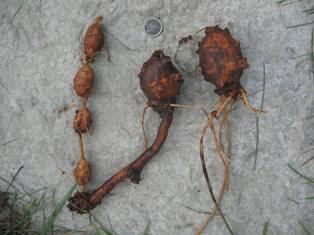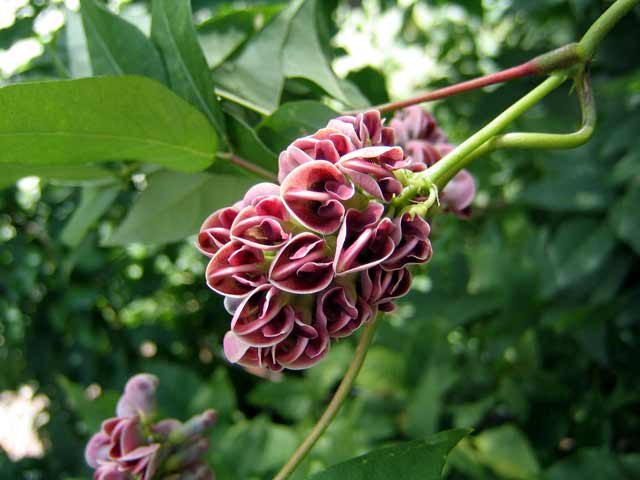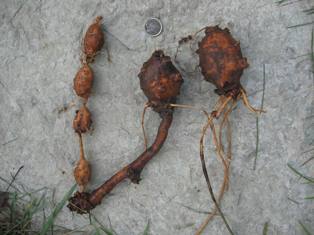Groundnut - Apios americana
Groundnut - Apios americana
Couldn't load pickup availability
Apios americana, or Groundnut (the most widely used name among a number of less common alternatives) is perhaps the best-known North American wild tuber. It is extensively discussed in foraging books, well known to naturalists, and widespread, if a bit difficult to harvest, in the wild. It is a beautiful, easily grown plant in the right location, and provides large harvests of small to medium tubers, easy to clean and cook (stews are best, in our experience). Shipped March-April or October-November. These were propagated from several locations in Eastern Ontario. Each will produce a profusion of small tubers the first year, and larger ones the second.
Cultivation: A vine that prefers river banks in the wild, it requires two main things to succeed when cultivated: rich, moist soil (heavily mulched loam is best), and something to climb on. The structure can be built, much like the different trellises gardeners use for peas and beans (Apios americana is a bean, though the northern plants usually don’t produce pods, and the edible part is the tuber), or it can be another plant (we have them climbing on tall Jerusalem artichokes in parts of our garden), a shrub, or even a small tree (Juneberry or High Bush Cranberry for instance).
Food preparation: Best in stews or soups, it can also be fried or mixed with other tubers and mashed. The tuber is exceptionally nutritious, with a reported 17% protein content (three times what is found in potatoes). It also keeps well in a cold basement, or in a pit during the winter. There have been reports of allergic reactions to eating groundnut, but this has not been our experience. Just as with any new food, exert caution.
Ethnobotany: One of the most important plants for many North American indigenous peoples, it also figures prominently in colonial history and makes several appearances in American literature (from Thoreau to Euell Gibbons). Although several attempts at improvement and domestication have been made, its climbing nature and slow growth (a tuber takes at least two years to achieve full size) have combined to keep it wild and untamed. Just the way we like it!
Further reading on this fascinating plant: http://www.orionmagazine.org/index.php/articles/article/458/
Share




